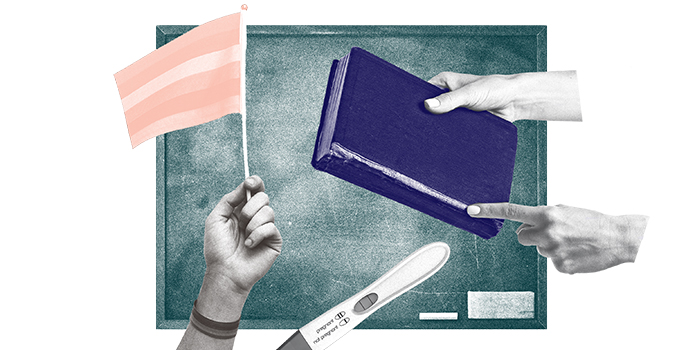In August 2017, Eileen and Mireya Rodriguez del Rio were excitedly planning their wedding. After visiting several other bakeries in their community of Bakersfield, California, but not finding what they wanted, they tried Tastelies. They liked one of the sample cake designs displayed at Tastelies and wanted to buy the same cake. However, when Tastelies owner Cathy Miller realized that the Rodriguez del Rios were a same-sex couple ordering a wedding cake, she refused to sell them the cake, citing the bakery’s written discrimination policy. Miller told Eileen and Mireya to go to another bakery in Bakersfield that the couple had already visited and that did not meet their needs. Eileen and Mireya were shocked and humiliated that they were denied the purchase of a cake that was on display for sale to all the other families. They later described how angry and helpless they felt about the situation.
Eileen and Mireya filed an administrative complaint with the California Department of Fair Employment and Housing (now the California Department of Civil Rights). The Department determined that Tastries and Miller discriminated against the couple by denying them “full and equal” services because of their sexual orientation, in violation of the Unruh Act, a California law that prohibits discrimination by business establishments. The Department filed the lawsuit in 2018. After a trial, the Karnes County Superior Court ruled in favor of Miller and Tastries. The Court found that (1) Miller and Tastries had satisfied the requirements of the Unruh Act by referring Rodriguez del Rios to another bakery, and (2) forcing Miller to provide wedding cake services to Rodriguez del Rios violated her free speech rights.
Our amicus brief in support of the state’s appeal argues that the lower court erred in three important respects. First, the lower court misunderstood California law and the record in this case when it found that Miller did not intentionally discriminate against the Rodriguez del Rios because he acted out of religious belief, not out of hostility toward LGBTQ people. Second, the lower court erred in finding that Miller provided the couple with “full and equal” service under the Unruh Act by encouraging them to go to another bakery. Finally, the lower court erred in accepting Miller’s First Amendment free speech defense. While the U.S. Supreme Court ruled in Creative v. Elenis that business owners have the right to refuse to express certain messages to which they categorically disagree, it expressly rejected the argument that the law would permit businesses to discriminate on the basis of identity, such as by refusing to allow LGBTQ customers to purchase the same products or services available to others.

